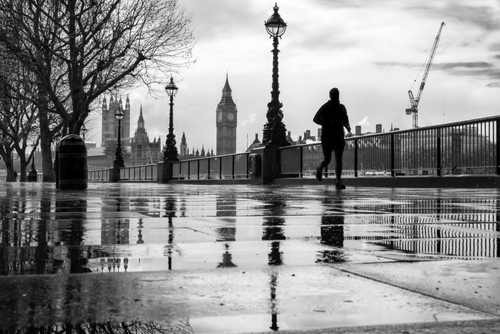|
|
The Bank of England (BoE) has warned that Great Britain will fall into a “very challenging” two-year recession, during which real incomes will decline and unemployment will double to about 6.5 percent before 2025.
During the period, the U.K.’s economy will perform less well than those of the Eurozone and U.S., bank governor Andrew Bailey said in a public statement.
The stark warning came as the bank raised its key interest rate from 2.25 percent to 3 percent, its eighth rate bump this year and the biggest single jump since 1989, as it struggles to tame inflation.
The central bank’s interest rate is now its highest since 2008 during the Great Recession.
Inflation ran at 8.8 percent in September, according to government statistics, although some analysts put it above 10 percent. It will reach 11 percent by January and remain above 10 percent over “the near term,” bank officials said in a statement.
As a result, Britain’s GDP will shrink by 0.75 percent during the second half of this year, sliding into a recession in the new year that will last at least 18 months, the statement said.
Britons face a “tough road ahead,” Bailey acknowledged, adding that the bank had to take drastic measures now or the economy “will be worse later on.”
Previously, the bank had forecast a recession starting late this year and lasting only for one year, not two. The recession now will extend through at least the first half of 2024, Bailey said, which would be the longest since the bank began keeping records a century ago.
Following Bailey’s comments, the pound slipped 2 percent against the dollar to $1.11 and government bond yields rose. The pound had crashed to a 37-year low in September on the heels of ousted prime minister Liz Truss’s proposed budget that slashed a variety of taxes and called for new borrowing to subsidize household energy bills.
The pound closed at $1.15 on 7 November.
“The most important thing the British government can do right now is to restore stability, sort out our public finances, and get debt falling so that interest rate rises are kept as low as possible,” finance chancellor Jeremy Hunt said in a public statement.
However, families are reaching the breaking point “when we’ve got rising food prices, rising energy bills and now higher mortgage rates as well,” opposition Labor Party official Rachel Reeves responded in a press statement.
The central bank will continue to raise interest rates if inflation refuses to yield, Bailey said.
Markets are betting the bank’s key rate will reach 5.25 percent but minutes of the bank’s meeting last week indicated it expects its rate to peak at about 4.25 percent.
Still, the BoE has predicted that if interest rates keep climbing, people who need to refinance car and mortgage loans could face a leap of as much as £3,000 a year in their payments.
Earlier this fall, the BoE had predicted a 6-percent peak rate after Truss announced her disastrous budget proposals.
Analysts at BNP Paribas expect the BoE to raise its key rate three more times, lofting it to 4.5 percent, they said in a note to clients.
Truss’s fiscal debacle “damaged” the U.K.’s reputation, Bailey said.
At the International Monetary Fund’s annual meeting in Washington last month, “it was very apparent to me that the U.K.’s position had been damaged,” he told a press briefing.
TREND FORECAST: The world economy faces a domino effect.
Britain’s recession will drag down Europe’s economy; the two are close trading partners.
Because China has become Europe’s chief supplier of imports, the Eurozone’s economic tailspin will worsen China’s slowdown.
China and the U.S. are each other’s main trading partners overall. China’s weakness will damage U.S. GDP and sharpen the risk of recession.

